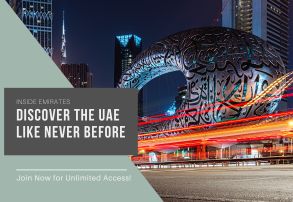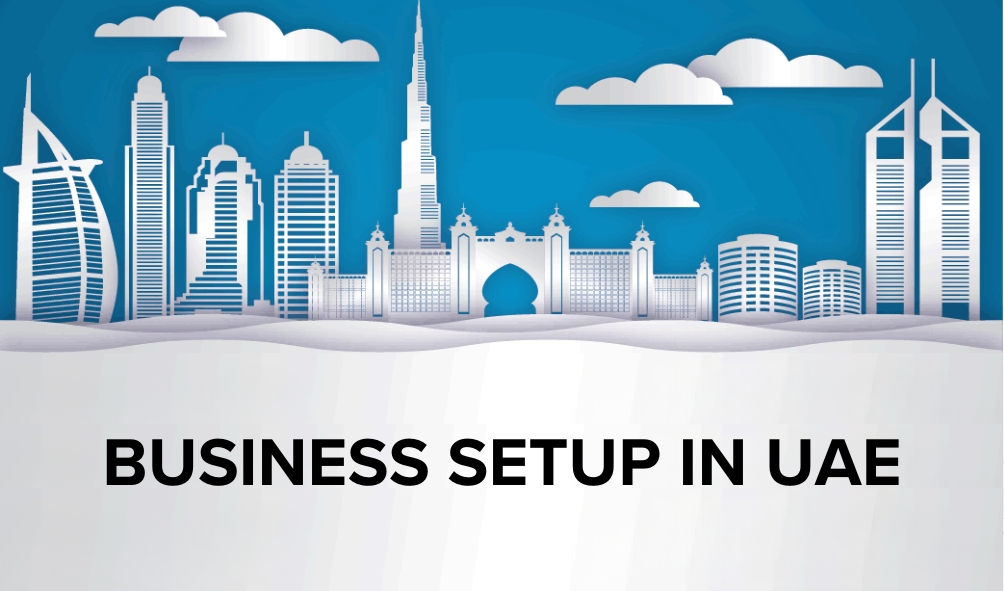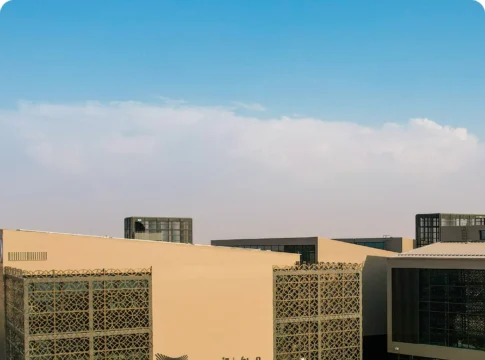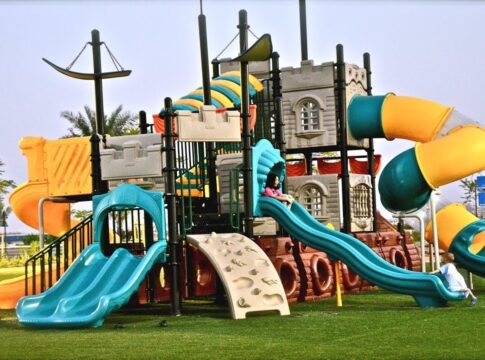Starting a business in the United Arab Emirates has become one of the most attractive opportunities for entrepreneurs worldwide. The UAE offers a unique blend of strategic location, world-class infrastructure, and investor-friendly policies that make it an ideal destination for business formation.
With its seven emirates, including Dubai, Abu Dhabi, Sharjah, Ajman, Ras Al Khaimah, Fujairah, and Umm Al Quwain, the UAE provides diverse options for business setup with varying costs and benefits. Whether you are looking for a low-cost business setup in Dubai, freezone business setup in Dubai, or exploring options like Sharjah free zone business setup and Ajman free zone business setup, this comprehensive guide will walk you through everything you need to know about establishing your business in the UAE.
Understanding UAE Business Setup Options
The UAE offers three primary jurisdictions for business establishment. Each jurisdiction comes with distinct advantages and limitations that entrepreneurs must carefully consider before making their decision.
Mainland Company Setup
Mainland companies operate under the Department of Economic Development in each emirate. These businesses enjoy unlimited trading rights across the UAE and internationally. Mainland companies can directly engage with UAE consumers and government entities without restrictions.
Foreign investors can now own 100% of their mainland business in many sectors thanks to recent reforms. Previously, a local sponsor holding 51% ownership was mandatory for most activities. The removal of this requirement has significantly increased the appeal of mainland company formation.
Free Zone Company Setup
Free zones are designated economic areas offering special incentives to attract foreign investment. The UAE hosts over 40 free zones across its seven emirates, each catering to specific industries and business needs. Popular options include DMCC free zone business setup, IFZA, RAKEZ, and various Sharjah and Ajman free zone options.
Free zone companies benefit from 100% foreign ownership, complete profit repatriation, and zero corporate tax on qualifying income. These zones provide streamlined licensing procedures and often include business support services. However, free zone companies face restrictions on conducting business directly in the UAE mainland without obtaining additional licenses.
Offshore Company Setup
Offshore companies are designed for international business operations without physical presence in the UAE. These entities cannot conduct business within the UAE mainland but offer maximum privacy, asset protection, and tax efficiency.
Offshore setup costs are typically the lowest among the three options, making them attractive for holding companies and international traders.
Comparing Business Setup Costs Across Emirates
Caution: The monitoring values are estimated costs.
Business Setup in Dubai
Dubai remains the most popular choice for entrepreneurs seeking business setup in UAE. The emirate offers world-class infrastructure, international connectivity, and a thriving business ecosystem. Business setup costs in Dubai vary significantly based on jurisdiction choice.
Low-Cost Business Setup in Dubai
Entrepreneurs seeking low cost business setup in Dubai should explore budget-friendly free zones. Sharjah Media City offers packages starting from AED 5,750, making it one of the most economical options. International Free Zone Authority provides comprehensive packages from AED 11,900 with up to three business activities included.
Several strategies can reduce initial setup costs. Choosing flexi desk arrangements instead of dedicated offices saves substantially on rent. Starting with minimal visa quotas and expanding later helps manage expenses. Selecting free zones with all-inclusive packages eliminates unexpected fees.
Sharjah Free Zone Business Setup
Sharjah hosts several free zones catering to different industries and budgets. Sharjah Airport International Free Zone, Sharjah Media City, Hamriyah Free Zone, and Sharjah Publishing City offer diverse options. License costs start as low as AED 5,750 depending on the zone and business activity.
Sharjah free zone business setup appeals to startups and SMEs due to lower costs compared to Dubai. The emirate provides excellent connectivity to Dubai and other northern emirates. Businesses benefit from 100% foreign ownership, tax exemptions, and simplified licensing procedures.
Related: Sharjah Media City: A Premier Free Zone for Creative Entrepreneurs and Digital Businesses
Ajman Free Zone Business Setup
Ajman Free Zone ranks among the most cost-effective options in the UAE. Company formation packages start from AED 5,555 with basic licenses available from AED 6,000 for zero visa setups. One visa packages cost approximately AED 12,000 to AED 13,000.
Cost Comparison Table
| Jurisdiction | Starting Cost | First Year Total | Best For |
|---|---|---|---|
| Ajman Free Zone | AED 5,555 | AED 12,000-15,000 | Budget-conscious startups |
| Sharjah Free Zone | AED 5,750 | AED 13,000-18,000 | SMEs and service businesses |
| Dubai Free Zone | AED 12,900 | AED 25,000-35,000 | Growing businesses |
| DMCC Free Zone | AED 18,000 | AED 45,000-50,000 | Luxury and trade businesses |
| Dubai Mainland | AED 20,000 | AED 35,000-50,000 | High market access needs |
Types of Business Licenses in UAE
Commercial License
Commercial licenses cover trading activities including buying, selling, importing, and exporting goods. This license type suits retail businesses, wholesale operations, general trading companies, and e-commerce ventures. License fees vary by emirate and specific activities but typically range from AED 10,000 to AED 25,000 annually.
General trading licenses allow businesses to trade in multiple product categories. Companies can deal in electronics, furniture, clothing, toys, industrial equipment, food products, cosmetics, and automotive parts. Certain items like food and pharmaceuticals require additional approvals from relevant authorities.
Professional License
Professional licenses are issued for service-based businesses and consultancies. This category includes legal services, accounting, marketing, IT consulting, engineering, architecture, and educational services. Professional licenses typically cost less than commercial licenses, ranging from AED 5,600 to AED 12,000.
Freelancers and individual professionals can obtain professional licenses to operate independently. Many free zones offer specialized freelancer packages at reduced rates. The professional license allows businesses to sponsor employees based on office size and business activity.
Industrial License
Industrial licenses are required for manufacturing, production, and processing activities. These operations transform raw materials into finished products. Examples include textile manufacturing, food processing, chemical production, and packaging operations.
Industrial licenses require additional approvals from the Ministry of Industry and Advanced Technology. Businesses need appropriate facilities including warehouses, machinery, and environmental clearances. Costs are higher due to infrastructure requirements but the UAE offers strong support for manufacturing ventures.
Business Setup Process and Timeline
Initial Planning and Documentation
The business setup journey begins with careful planning and documentation. Entrepreneurs must first decide on their business activity, legal structure, and preferred jurisdiction. This decision-making process typically takes one to three days depending on clarity of business objectives.
Essential documents include passport copies of all shareholders and directors valid for at least six months. UAE residents must provide Emirates ID and visa copies. Proof of residential address through utility bills or tenancy agreements is required. Corporate shareholders need additional documentation including certificates of incorporation, memorandums of association, and board resolutions.
Trade Name Approval and Initial Approval
After finalizing business plans, entrepreneurs submit trade name applications for approval. The chosen name must comply with UAE naming regulations and cannot conflict with existing businesses. Trade name approval typically takes two to seven days.
Initial approval from the relevant authority follows trade name reservation. This stage involves submitting business plans, proposed activities, and shareholder information. Free zones generally process initial approvals faster than mainland authorities. The timeline ranges from three to five days with proper documentation.
License Issuance and Registration
Once initial approvals are secured, entrepreneurs proceed with license applications. This involves paying registration fees, submitting final documentation, and obtaining external approvals if required. License issuance takes five to seven days for most free zones and up to two weeks for mainland companies.
Office Space and Visa Processing
Securing office space is crucial for both mainland and free zone setups. Mainland companies must lease physical offices and register tenancy contracts through Ejari. Free zones offer flexible options including flexi desks, co-working spaces, and dedicated offices. Office arrangements typically take three to five days.
Visa processing begins after license issuance. Business owners can apply for investor visas for themselves and employment visas for staff. Visa processing includes medical examinations, Emirates ID applications, and residency stamping. The complete visa process takes seven to fourteen days.
Profitable Business Opportunities in UAE
E-Commerce and Online Retail
E-commerce ranks among the most profitable sectors in the UAE with the market projected to exceed USD 10 billion by 2026. The high internet penetration rate of 92% and growing consumer preference for online shopping create excellent opportunities. Entrepreneurs can launch niche product stores, dropshipping businesses, or multi-category marketplaces.
Technology and Innovation
The UAE technology sector experiences rapid growth driven by government support and digital transformation initiatives. Artificial intelligence, fintech, cybersecurity, and software development present lucrative opportunities. The government commitment to smart cities and digital infrastructure creates sustained demand for tech solutions.
Healthcare and Wellness
Healthcare spending in the UAE continues growing with the sector expected to reach USD 4.6 billion in 2025. Population growth, medical tourism, and government health initiatives drive demand. Profitable ventures include specialized clinics, telemedicine services, fitness centers, wellness retreats, and organic nutrition products.
Renewable Energy and Sustainability
The UAE commitment to achieving 50% renewable energy by 2050 creates substantial opportunities in green businesses. Solar power installation, energy efficiency consulting, sustainable construction solutions, and eco-friendly product manufacturing are in high demand. Government incentives and support programs make sustainability ventures financially attractive.
Frequently Asked Questions
How to setup your business?
Business setup begins with thorough planning and research. Identify your business idea and validate market demand. Choose the appropriate jurisdiction considering your target market, budget, and business model. Select your legal structure based on ownership preferences and operational needs. Gather required documentation, including identification, proof of address, and corporate documents if applicable. Apply for trade name reservation ensuring compliance with naming regulations.
Submit initial approval applications with business plans and activity descriptions. Secure external approvals from relevant authorities for specialized activities. Pay registration and license fees according to your chosen package. Arrange office space meeting license requirements through flexi desks, co-working spaces, or dedicated offices. Receive your trade license and establishment card.
Open corporate bank accounts for business transactions. Process investor and employee visas for yourself and staff. Consider engaging business setup consultants to navigate procedures efficiently and ensure compliance.
How much does it cost to set up a business in Dubai?
Business setup costs in Dubai vary widely based on jurisdiction and business type. Free zone setups start from AED 8,000 to AED 12,900 for basic packages with zero visas. Comprehensive free zone packages with one visa cost AED 18,000 to AED 34,000 including office space and registration.
Mainland company formation ranges from AED 25,000 to AED 50,000 or more for the first year. Specific costs depend on license type, visa requirements, office arrangements, and chosen free zone or emirate.
How to setup your own business in Dubai?
Setting up your business in Dubai involves several steps. First, decide on your business activity and choose between mainland, free zone, or offshore jurisdiction. Select an appropriate legal structure such as LLC, sole establishment, or free zone company.
Reserve your trade name and obtain initial approval from relevant authorities. Prepare required documents including passport copies, business plans, and shareholder information. Submit license applications and secure external approvals if needed for your activity. Lease office space and register tenancy contracts.
Obtain your trade license and establishment card. Open a corporate bank account. Apply for investor and employee visas. The entire process typically takes two to four weeks with proper documentation and guidance.
Can I own 100% business in Dubai?
Yes, foreign investors can now own 100% of businesses in Dubai across most sectors. Both mainland and free zone companies offer complete foreign ownership without local sponsor requirements. Recent legal reforms removed the previous mandate for 51% local ownership in mainland companies.
Free zones always provided 100% foreign ownership as a fundamental benefit. Some restricted activities may still require local participation but the vast majority of business sectors allow full foreign control. This policy change significantly enhances Dubai’s attractiveness as a business destination.
Which business is best in 2 lakh?
Starting a business with AED 200,000 budget provides excellent opportunities in the UAE. E-commerce businesses require minimal physical infrastructure and can launch with low overhead costs.
Digital marketing agencies need a limited initial investment, focusing on skills and tools rather than inventory. Freelance consultancy services in areas like business advisory, IT consulting, or design require mainly professional expertise. Online tutoring and educational platforms leverage digital delivery without physical premises.
Home-based businesses like catering, personal training, or event planning minimize rental expenses. Social media management and content creation services suit budget-conscious entrepreneurs. Small retail businesses, through dropshipping, eliminate inventory costs. These options allow entrepreneurs to establish legitimate businesses within budget constraints while maintaining growth potential.
Which business is 100% profitable?
No business guarantees 100% profitability as success depends on execution, market conditions, and management. However, certain sectors in the UAE demonstrate strong profit potential.
- Technology services including software development, cybersecurity, and IT consulting show high margins with growing demand.
- Digital marketing and social media management require low overhead with scalable revenue.
- E-commerce businesses benefit from the booming online shopping trend.
- Healthcare services, including specialized clinics and wellness coaching, meet increasing health awareness.
- Real estate brokerage and property management leverage the active property market.
- Financial consulting and accounting services serve the expanding business community.
- Renewable energy solutions align with government sustainability priorities.
- Professional training and education businesses capitalize on skill development demand.
Success requires proper market research, quality service delivery, effective marketing, and strong financial management. Profitable businesses typically solve real problems, meet genuine needs, and deliver exceptional value to customers.
Can freezone company do business in mainland?
Yes, free zone companies can now conduct business in the UAE mainland under specific conditions. The landmark Executive Council Resolution No. 11 of 2025 allows Dubai free zone companies to operate on the mainland by obtaining appropriate licenses from the Dubai Department of Economic Development.
Companies can apply for mainland branch licenses, temporary activity permits, or mainland trading licenses while maintaining their free zone headquarters. This eliminates the previous requirement for third party distributors or local agents.
However, free zone companies must comply with all federal and local laws including anti-money laundering policies, corporate governance standards, and consumer protection regulations. Proper licensing, financial record keeping, and regulatory compliance are mandatory.
Some free zones like RAKEZ offer dual licensing options combining free zone and mainland permissions under single packages. Companies must secure initial permission from their free zone authority before approaching the Department of Economic Development for mainland licensing requirements.
Conclusion
The UAE business landscape continues to evolve with new regulations, opportunities, and market trends emerging regularly. To ensure you stay informed about the latest business setup procedures, regulatory changes, cost updates, and insider tips for success in the Emirates, subscribe to Emirates Insider. Subscribe today and never miss out on valuable insights that can help you make informed decisions and maximize your business potential in the Emirates.




